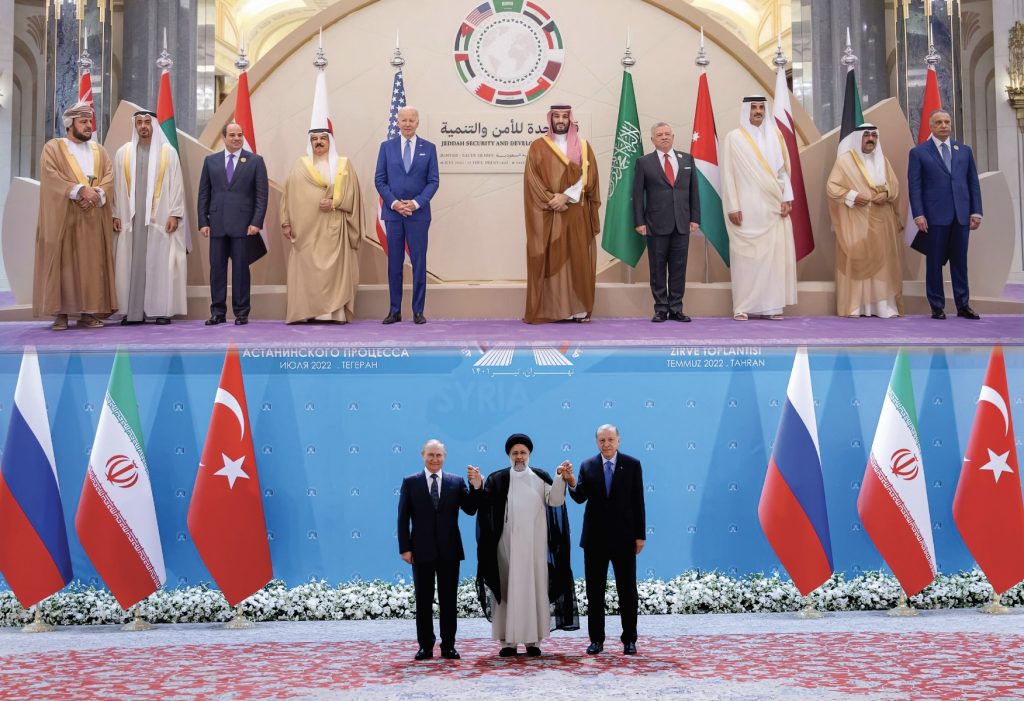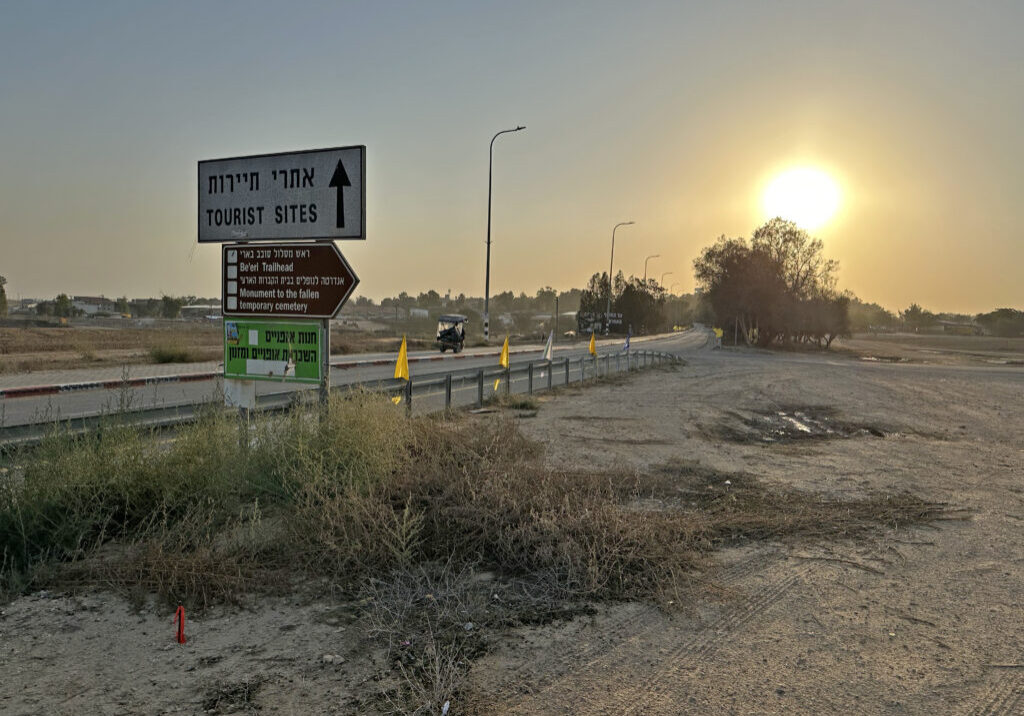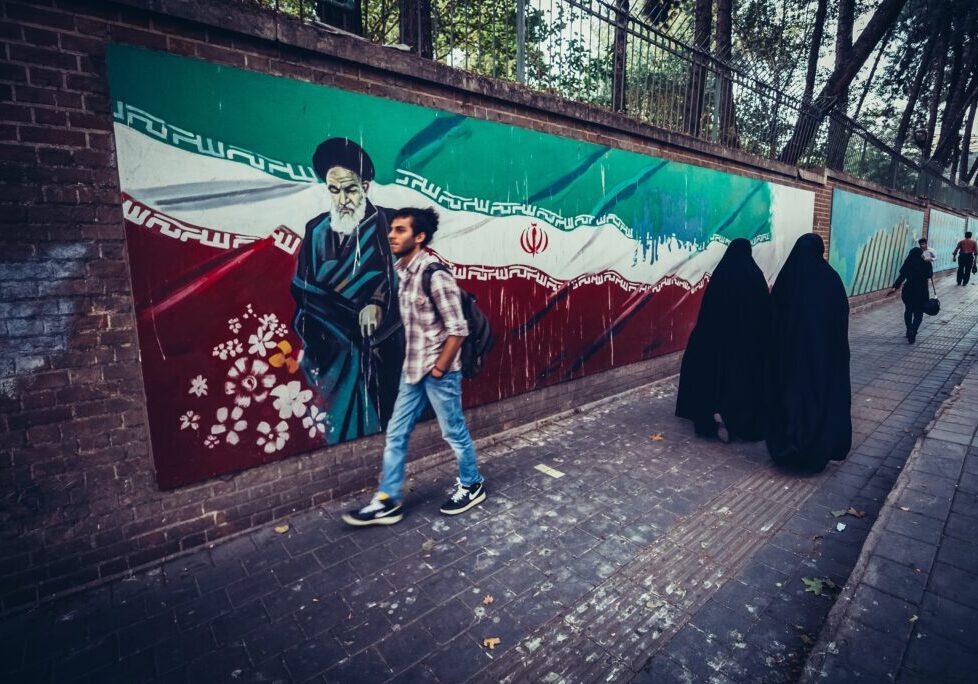Australia/Israel Review, Featured
Editorial: Two Mideast Visits
Aug 1, 2022 | Colin Rubenstein

In mid-July, US President Joe Biden visited Israel and Saudi Arabia. He also met with multiple other Arab leaders, as well as the Palestinian Authority.
A week later, Russian President Vladimir Putin travelled to Iran for his first international trip beyond former Soviet republics since the launch of the invasion of Ukraine in February. There, he met with the leaders of Iran and Turkey, a continuation of the trilateral meetings covering Syria that have been taking place since early 2017.
Some are arguing that Biden’s Mideast trip failed to produce any deliverables or was even counterproductive, but they misunderstand both the trip and the current dynamics of the Middle East.
Biden explained before his trip, “I’m going to Israel to meet with Israeli leaders to affirm the unbreakable bond Israel and the United States have. And part of the purpose… is to deepen Israel’s integration in the region, which I think we’re going to be able to do and which is good for peace and good for Israeli security.”
These are admirable and sensible metrics, and according to them the trip was an unmitigated success.
In the first place, it is both symbolically and practically vital for the Washington to reassure Jerusalem of its commitment to Israel’s security, particularly as the US shifts its focus to great power conflict with Russia and China. The “Jerusalem US-Israel Strategic Partnership Joint Declaration” that resulted from the trip did exactly this, underlining that the US “is prepared to use all elements of its national power to ensure” Iran never acquires a nuclear weapon, something Biden said explicitly meant military force as a last resort. (See Elliott Abrams on p. 13)
This is a dramatically stronger statement than those previously made by Biden and his Administration – and one which is sorely needed given Iran’s increasingly heedless and headlong rush to nuclear weapons capabilities.
In the Declaration, the US also pledged to help Israel combat Iran and its terrorist proxies, push back against the Boycott, Divestment and Sanctions (BDS) movement and other attempts to single out and discriminate against the Jewish state, and strengthen the Abraham Accords.
When it comes to Israel’s regional integration, one of the substantive deliverables was Saudi Arabia’s historic decision to open its airspace to flights to and from Israel. Both Biden and Lapid declared this was hopefully a first step toward Saudi Arabia’s normalisation with Israel, despite public denials from Riyadh.
Reports suggest that Biden’s visit also advanced the Middle East Air Defence (MEAD) pact, an initiative to link the sensors and air defence systems of Israel and its Gulf partners, creating an integrated air defence network to combat the drones and missiles of Iran and its proxies. While no explicit announcements have been made, Israeli Defence Minister Benny Gantz said the pact was “already in action” in June.
Of course, spokespersons for both Saudi Arabia and the UAE publicly pushed back against any such idea, with the former saying, “There was no discussion about a GCC-Israeli defence alliance or anything of the sort” and the latter saying it would have nothing to do with “targeting any other country in the region and I specifically mention Iran.”
These nervous statements are no surprise – but they also should not be taken at face value.
Unlike Israel, the Gulf states have no consistent security interests or relationships, preferring to try to have good relations with everyone. They fear Iran, but will do their best to pretend this is not the case and leave their options open in case they ultimately come to the conclusion that there is no choice – especially if they doubt US credibility – but to seek terms from Teheran.
Indeed, both the UAE and Saudi Arabia have also been developing problematically close ties with China and Russia over recent years, partially for ideological reasons.
This is why Biden focussed his efforts and statements on Israel, the lynchpin of the US security architecture in the region and only completely reliable ally. But while moderate Arab states may have their reasons for being publicly coy, Biden’s trip and meetings helped build on a US-coordinated joint security architecture that is already in place and only likely to grow stronger and more significant.
The Abraham Accords are developing into much more than simply normalisation and economic relations. They are becoming the core of a covert defensive alliance covering not only Israel, the UAE, Morocco, and Bahrain, but also Saudi Arabia, Egypt, Jordan, and Oman, all under a US umbrella.
Putin, meanwhile, won explicit backing for Russia’s invasion of Ukraine from Iran, and is reportedly engaged in discussions to purchase hundreds of Iranian drones to use in that war. Rather than demonstrating strength, the fact that Russia may have to rely on Iran militarily for help is an international embarrassment.
Yet the visit underscored how Iran and Russia are clearly more closely aligned than ever – cooperating to bust the sanctions they both face, as well as diplomatically, rhetorically, and in terms of military exchanges.
China is, of course, also a key part of this global and regional revisionist bloc challenging all status quo nations, helping to keep both Moscow and Teheran afloat through oil purchases, among other measures. Warning allies against China’s efforts to gain regional influence would likely have been a key sub-text of the Biden visit.
The Putin and Biden trips underscored how the region is increasingly polarised, suggesting echoes of the superpower competition which was the key dynamic across the Middle East during the Cold War.
Despite the much-discussed US “retrenchment” in the Middle East, Biden’s visit makes clear that no such withdrawal is actually taking place (despite the disastrous optics and implications of the Afghanistan withdrawal last year). Whether it’s regional competition with Russia and China or containing Iran, the US is in the Middle East to stay. This reassurance to both Israel and the Gulf states is real, and the most significant outcome of Biden’s important regional visit.
Tags: Gulf states, Iran, Israel, Middle East, Russia, Saudi Arabia, UAE






